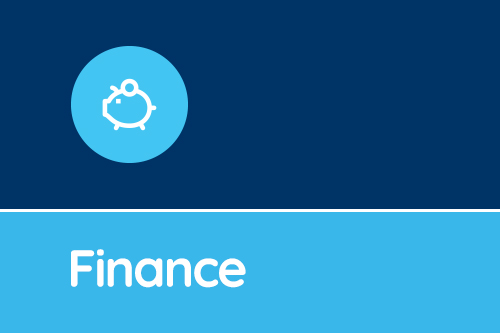
It's a strange February this year - half term came much earlier.
There's lots to do but so few days in the month. As we prepare to leap into the last month of the fiscal year we look at where you might be able to get information to help you with your financial health and budget planning for 2016/2017.School's Financial Health & Efficiency
The Department for Education has recently announced that they will be providing information, tools, training and guidance to help schools improve their financial management and efficiency. Childcare and Education Minister Sam Gyimah said. 'Good financial health and maximising the efficient use of funding is essential to delivering educational excellence. The economic climate means there is more impetus than ever for schools to become as efficient as they can. For schools to deliver the high standards we expect of them, they must start from a position of strong financial management.' The resources are aimed at School Business Managers, Headteachers and Governors. Schools and academies should make sure these staff, members of the SLT and perhaps a wider audience are aware of the resources. Why not send them a link to this blog. For further details about the resources click here.Funding Allocations
Allocations from the Department for Education for 2016-2017 will be released soon to all schools and academies. Local Authorities are in the process of advising schools of their allocations so that they can prepare budgets for April 2016 to March 2017. While the EFA have provided general guidance on 2016-2017 funding allocations for academies and free schools (click here for details), with funding statements being sent out to all academies open up to and including 1 January 2016 by the end of March.School & Academy Benchmarking
DfE sent individual Benchmarking Report Cards to all schools by email in January 2016. The report card provides highlights of schools’ key financial and performance data compared with a small number of statistical neighbours. DfE has selected similar schools on the basis of pupil deprivation and special educational needs (SEN) indicators. You can benchmark your school against other schools by using the schools financial benchmarking websites. Maintained schools can view the schools financial benchmarking website For academies the financial benchmarking website for academies contains information about academies that have been open for more than 12 months provided by the annual academies accounts return. Academies might also be interested in the Academy Benchmarking Report produced by Hacker Young Chartered Accountants, covering the period 2014/2015. The information is gathered from the financial returns recently completed by the firm for its clients. Click here to visit the Hacker Young website. If you are aware of other accountancy firms producing benchmark reports let us know and we will publish in our next blog.What should RM Integris users do?
As of January 12 2016, Microsoft will only be updating and supporting Internet Explorer (IE) 11 – the latest version of IE. We recommend that schools update Internet Explorer where possible, especially on those computers that use RM Integris. Click here to see our ICT Blog for further informationQuick Notes
Post 16 Funding - Full-time students who have a grade D GCSE in either Maths or English must be enrolled on GCSE or an approved IGCSE qualification. This came into effect from 1 August 2015 - click here for more. UK state schools have improved so much that some private schools may go out of business, the Good Schools Guide says. When the guide was first published in 1986, it recommended 10 state schools - 4% of its total. This year, about 300 schools (25%) are in the state sector. See the BBC Report here. The DfE has provided information to help schools run an efficient procurement process when buying goods and services - click here for the guide. The DfE has provided a guide on the effective maintenance of school buildings to support the delivery of education for headteachers, business managers and facilities managers - click here for more. Eight local authorities will share £13 million to test out the doubling of free childcare for three- and four-year-olds. Ministers expect thousands of parents to benefit from the scheme, starting early from September in Wigan, Staffordshire, Swindon, Portsmouth, Northumberland, York, Newham and Hertfordshire. Click here for a report from Nursery World.Get sector Insights delivered straight to your inbox.
Subscribe to to the SBS Blog and never miss an update.

